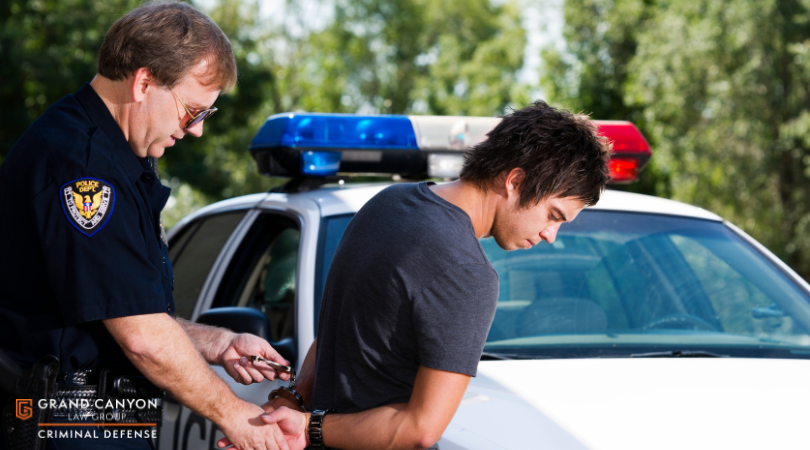Teen Facing Criminal Charges? You’re Not Alone in This Fight

In Maricopa County, Arizona, the possibility of a juvenile being charged as an adult is very real under certain conditions. While juvenile court focuses on rehabilitation, adult court prioritizes harsher punishments. Understanding these circumstances is essential for parents looking to protect their child’s future.
When Can Juveniles Be Charged as Adults in Maricopa County?
Juveniles can be charged as adults under specific scenarios. The decision depends on factors like the nature of the offense and the juvenile’s age. If you’re a parent facing this situation, quick action is crucial.
Serious Felony Offenses
Juveniles accused of severe crimes like homicide, armed robbery, aggravated assault, or certain sex offenses can face adult charges. Arizona law allows this because these offenses are seen as so severe that they demand adult-level accountability. Prosecutors argue that the gravity of the crime shows the minor’s understanding of their actions.
Older Teens and Adult Charges
Teens aged 16 to 17 are at higher risk of being charged as adults. In Maricopa County, prosecutors sometimes wait until a minor turns 18 before filing charges. This tactic allows for adult-level sentencing, focusing on punishment instead of rehabilitation. Timing plays a critical role in these cases, impacting the juvenile’s future dramatically.
Why Prosecutors Push for Adult Charges
Prosecutors do not automatically pursue adult charges. They consider several factors:
- Nature of the Crime: Violent and severe crimes often lead to adult charges. Offenses that pose serious risks to victims or public safety influence this decision.
- Prior Criminal Record: A history of offenses increases the chances of adult charges. If past rehabilitation efforts failed, prosecutors might view the juvenile system as inadequate.
- Age of the Juvenile: The closer the juvenile is to 18, the more likely prosecutors are to seek adult charges. Adult court offers stricter penalties and long-term accountability.
The Process of Charging a Juvenile as an Adult
Parents need to understand how the process works. Early intervention by an attorney can make a significant difference.
Direct Filing
For extremely serious offenses, prosecutors can file charges directly in adult court. This means bypassing the juvenile court system entirely, without a transfer hearing.
Transfer Hearings
For other cases, a transfer hearing determines if the juvenile should be moved to adult court. Both sides present evidence, and the judge considers the juvenile’s criminal history, the severity of the offense, and the potential for rehabilitation.
Age-Based Charging
If a juvenile commits an offense close to turning 18, prosecutors may delay filing until they turn 18. This approach ensures the case proceeds in adult court, exposing the juvenile to more severe penalties.
Why This Matters for Parents and Teens
Understanding the potential for adult charges is crucial. The implications can be severe and long-lasting.
Harsher Penalties in Adult Court
Juveniles charged in adult court face harsher consequences, like longer prison sentences and higher fines. Adult court focuses on punishment, not rehabilitation, which can severely impact a young person’s future.
Permanent Consequences
An adult court conviction carries consequences beyond the immediate sentence. These include:
- Limited job opportunities
- Challenges in pursuing higher education
- Loss of civil rights
- A permanent criminal record that affects many aspects of life
Limited Rehabilitation Opportunities
Juvenile court prioritizes rehabilitation, offering programs to address issues like substance abuse and mental health. Adult court, however, focuses on punishment and deterrence, limiting chances for a positive future.
Protecting Your Child: Proactive Steps to Take
If your child is at risk of being charged as an adult, take these steps immediately:
1. Hire an Experienced Juvenile Attorney
A skilled attorney can:
- Argue for the case to stay in juvenile court.
- Present mitigating evidence such as the minor’s background and mental health.
- Push to resolve the case before the child turns 18, preventing adult charges.
2. Act Quickly
Time is critical. Early involvement by an attorney provides more options to keep the case in juvenile court. Quick action can change the outcome significantly.
3. Educate Your Teen
Talk to your teen about the seriousness of their actions, especially as they near 18. Many don’t realize that offenses committed at 16 or 17 can lead to adult charges. Make sure they understand the potential consequences.
Common Questions Parents Ask
Q: Can my child avoid being charged as an adult?
A: Yes, in some cases. An experienced attorney can present evidence for keeping the case in juvenile court. They will highlight factors like rehabilitation potential and mitigating circumstances.
Q: What if my child is charged close to their 18th birthday?
A: Prosecutors might wait to file charges until after they turn 18 to pursue adult penalties. Early legal intervention can help resolve the case in juvenile court before this happens.
Q: How does the juvenile system differ from adult court?
A: Juvenile court focuses on rehabilitation, offering resources to help minors reintegrate into society. Adult court focuses on punishment, leading to more severe penalties and fewer chances for rehabilitation.
Act Now to Protect Your Child’s Future
If your child faces charges in Maricopa County, acting quickly is essential. At Grand Canyon Law Group, we have deep experience with both juvenile and adult court cases in Arizona. We advocate tirelessly for your child’s future, prioritizing rehabilitation and positive outcomes.
Contact Grand Canyon Law Group at (480) 573-6441 for a confidential consultation. Let us guide you through this challenging time and fight to keep your child’s case in the juvenile system, where their future can be prioritized.
